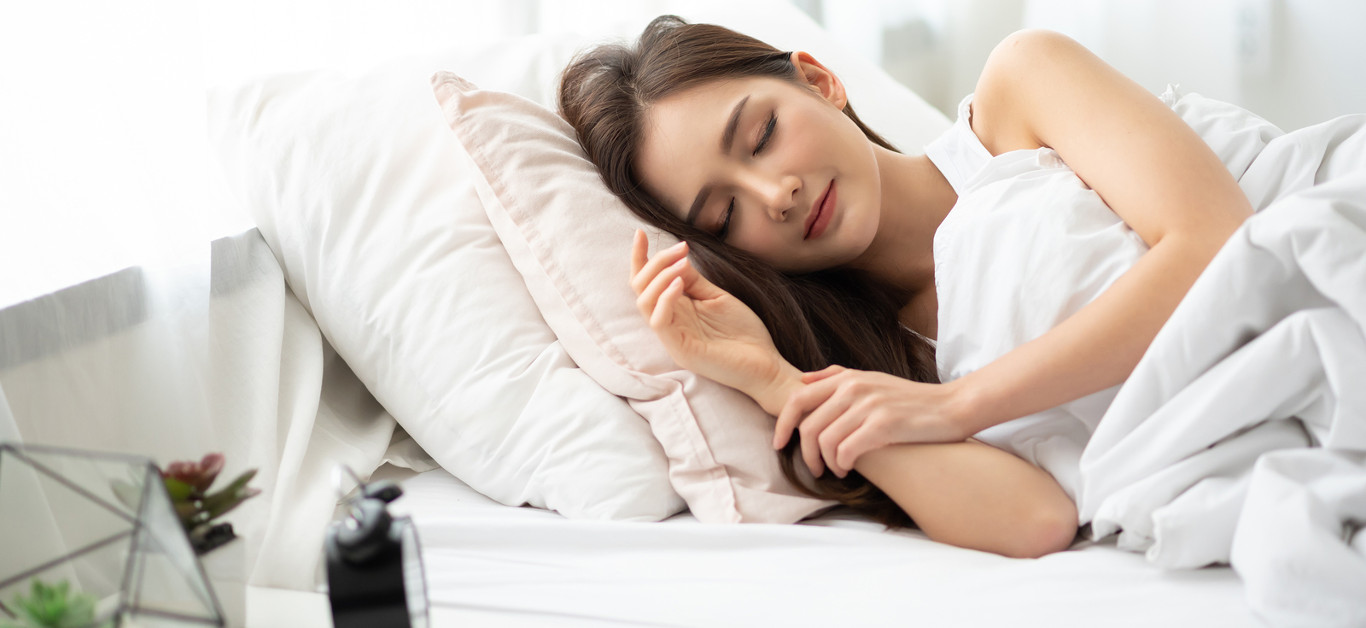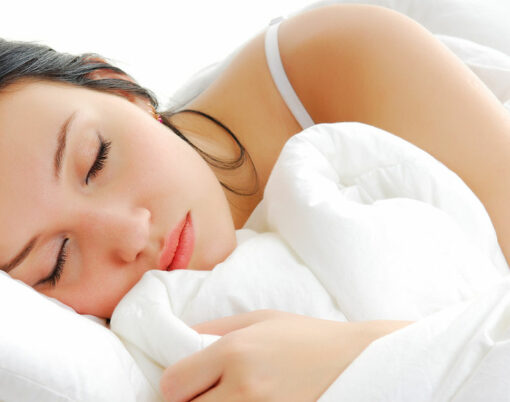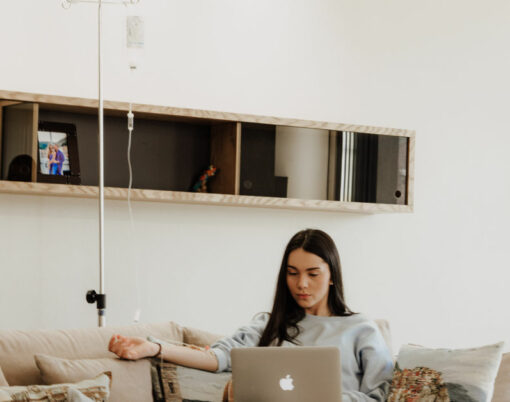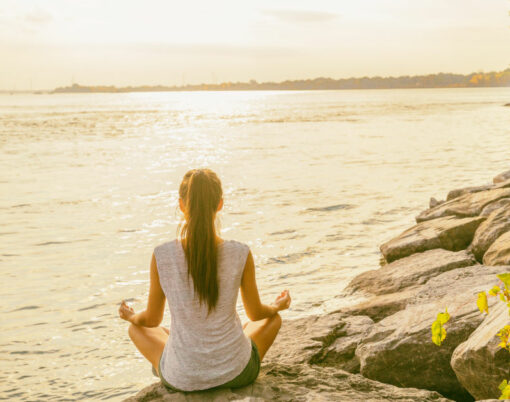Few things can ruin a perfectly normal day quite as readily as PMS – but when these hormonal fluctuations start to impact on your sleep quality, too, a bad day can quickly turn into a bad week.
Poor sleep can result in low mood, fatigue and a shorter temper than usual, so it’s essential that we get our recommended eight hours. Remedies like CBD oil for menstrual cramps can help to ease symptoms and make it easier to drift off, while organic tampons and heating pads can help to soothe pain. But it’s important to understand the root cause of disrupted sleep just before your period in order to handle it most effectively.
Here, we take a closer look at just why PMS impacts upon sleep quality, and what you can do about it.
Why PMS affects your sleep
A vast amount of research has been done on what causes PMS-related insomnia, yet there is still some uncertainty surrounding why exactly the two are linked. Nonetheless, what we do know is that hormonal fluctuations play a role. As good sleep relies on hormones like melatonin, even a minor imbalance can make it difficult to achieve a good night’s shut-eye.
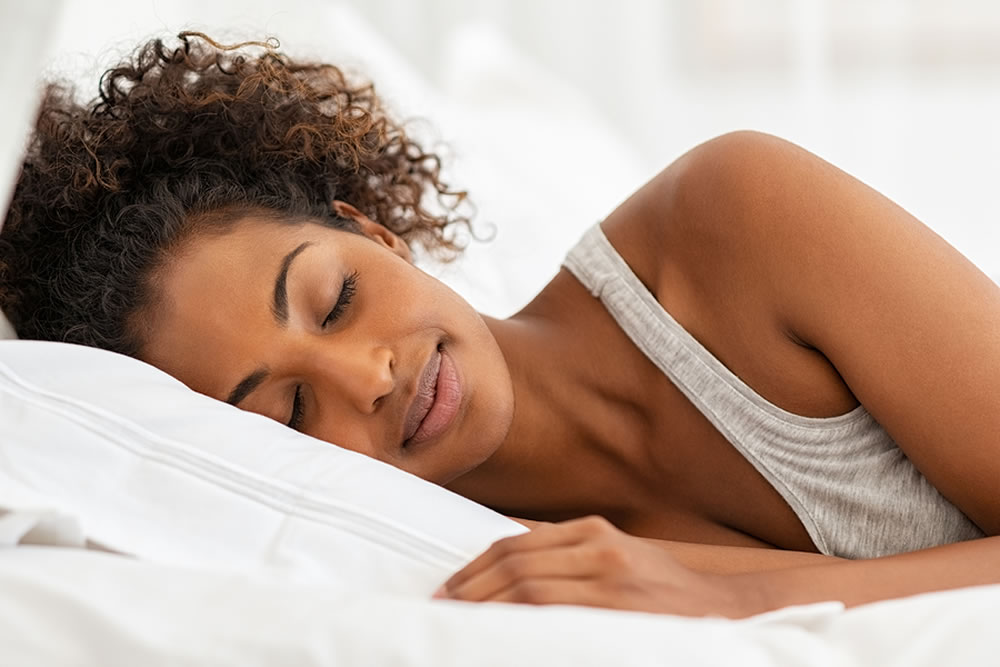
One thing that stands out to researchers is the increased levels of female hormone progesterone just before that time of the month, which causes our body temperature to spike. This can result in night sweats and discomfort and prevent you from falling into deep sleep – or cause you to wake repeatedly in the night. When in light sleep, you’re more likely to toss and turn, and the slightest bit of noise can cause you to stir – thus leaving you feeling unrested and unprepared for the day when you wake the following morning.
Mood swings
A symptom that is fairly common amongst women just before their period – and also happens to be one of the most difficult to deal with – is mood swings. These dramatic fluctuations can cause emotional overwhelm, as well as disrupting your sleep cycle, preventing you from switching off as easily just before bed.
In order to fall asleep, the mind needs to be relaxed when you turn the lights out so that the right hormones – like melatonin – signal to the brain that it’s time to shut down for the night. But mood swings that catch you at night can hamper this process and cause you to lie awake for a while, with anxious thoughts running on a loop in your head and preventing you from drifting off.
Tricks like taking a warm, relaxing bath, doing some yoga or sipping a cup of chamomile tea before bed can help to ease anxious thoughts and feelings of stress to make the entire process easier, so if you’re suffering from PMS-related insomnia then make some time to unwind fully before bed and see if you notice a difference.
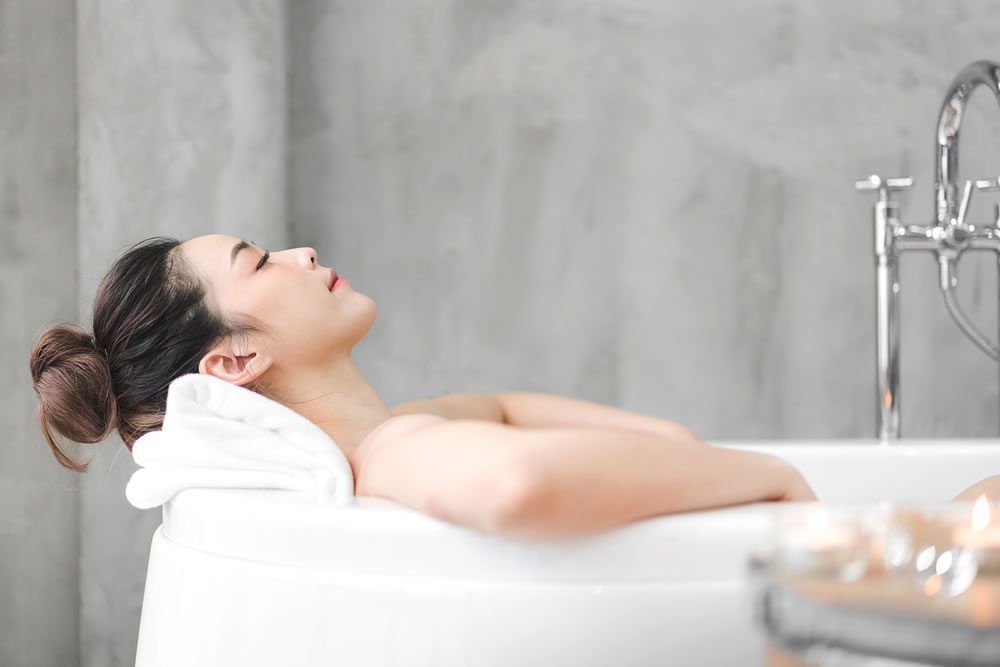
Diet
Whether your period is going to be easy or difficult to get through each month is directly tied into your diet and lifestyle. Certain foods and eating habits can make your period worse and have a knock-on effect on your sleep quality, too – so these should be the first areas you look at if your shut-eye is suffering in the lead-up to that time of the month.
In the week prior, it is a good idea to be a little more mindful of what you are eating and the impact it might have on your hormones. Try to reduce how much sugar you eat and avoid processed foods at all costs, opting instead for plenty of wholegrains, fruits and vegetables and lean sources of protein.
Avoiding heavy foods at dinner time, in particular, can make a huge difference to how well you sleep. Keep it light and you will have fewer issues when going to bed – and avoid alcohol if possible, because as well as impacting upon your hormonal balance, it can result in an increase in body temperature and lead to a more restless night’s sleep.












